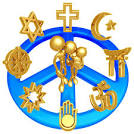
I have written a lot about post-war Britain because it had such a profound impact on my life. After the war Britain was a dangerous place to grow up in. Predatory behaviour was common. Rapes and sexual assaults were abundant, but no one talked about them. No one used the words, “sex” or “rape”, they were taboo. You knew something terrible had happened when a person disappeared. Rape victims kept quiet as it was generally the woman who was blamed and removed from the home. Unwanted pregnancies propped up a lucrative trade in backyard abortions and predatory behaviour was dismissed as just boys being boys. Crimes gained little attention from the authorities unless someone was severely injured or murdered, even then there was bias against women and children who were not breadwinners , thus, they had no economic value. Many young women called themselves “wombs for hire”. Rapes and assaults in marriage or relationships were deemed normal and women in these circumstances were inextricably trapped. No one would employ a divorced or separated women so life was a dead end, marriage or nothing. The upshot of this was, a man was determined “good” if he did not rape or murder his spouse, irrespective of what else he might have done. In reality, it was the lack of a wife’s physical injury that was the definition of a good husband. A good wife was one that was totally obedient and did not complain.
The only punishment for deviant behaviour was gossip and disapproving gossip could be mighty powerful, it could make a person’s life unbearable, but women were always to blame, women were known as the gossipers.
The aftermath of war was visibly horrible and it would visit me in my thoughts daily as well as in my nightly dreams. Most of my dreaming was immersed in war scenes and the fear of another war. Many who survived the Second World War came home without arms or legs or they were sick from the effects of gas and gun fire. Most were prone to ongoing illness and poverty so a lot of deviant behaviour was overlooked.
Many families were so poor that babies and toddlers would sleep in cardboard boxes placed on the damp floors and most decent parents were too proud to ask for help from the charities. People came constantly to our door for help as we always appeared well off, at least our personal struggles were secret. My grandmother always had food and a few coins to offer the needy, she would go without herself to help someone. Indeed, my grandmother was deemed the local angel, but sharing with the needy was a Jewish creed. Christians helped people too, but there was always a Bible in one hand and gifts in the other. Christians sought to boost their congregations because that way they could expand their churches. The Jews had no need of a church., they had survived for centuries without a Temple or they had built a sanctuary of a different kind through kinship.
My grandmother was an added blessing to the poor because the charities were never trusted as they had the power to take children away from their homes. Briton was an institutionalizing nation and anything funded by the church was suspected of being in collusion with the government.
Where there is poverty there is also added disease, polio, diphtheria and whooping cough were rife. Added to this, after the war years Britain was experiencing some of the coldest winters on record with people dying on mass from the freezing temperatures. Reduced means impacted on the rates of survival. For some death could not come quickly enough. People could be heard through the thin walls of terrace houses praying to God to take them out of their misery. Suicide was not unusual, but know would own up to it. Sympathetic doctors would find some ailment for the Death Certificate.
Where there was death the churches did well in gathering up souls for redemption. Grieving families turned to Jesus, but there religion was full of contradictions. On Sunday mornings the congregations would sit in the pews singing:
Onward Christian Soldiers, marching on to War, with the cross of Jesus going on before.
“Why would Jesus be involved in war” I asked my grandmother. ” I thought religion was about peace?” This was her answer.
“Jesus was a Zealot and the revolutionary leader of a group of men who plotted to drive the Romans from the occupation of the Holy Land. There were may attempts, but it was after Jesus died that the Jewish War really began. It was a failed coup that caused the destruction of the Jewish Temple”.
No one dared talk such heresy when I was growing up, but my grandmother was a wise old woman who cared little for peoples’ opinions. She talked often about the Temple, but I was too young to understand its significance.
My grandmother’s words endured, perhaps because my mother had chosen to become a Christian which served to divide the family. I never really understood this choice. However, in Britain after the war politics was much more powerful than religion and Britain was a Christian country that had historically fought hard for the separation of powers, so religion was often not taken seriously, it was just somewhere to find community.
Where there is hardship there is always corruption, even in the churches. Food and luxury items were also linked to religion and sold on the black market leading to fights and attacks against non-religious rivals. Pimps and prostitutes were rife on the streets and the authorities either turned a blind eye to them or extracted a part of their earnings for protection. Corruption was so visible on the streets that no one really thought there was anything wrong with it. Corruption in the churches was much worse.
War did not just end on Armistice Day it brought, guilt and disenchantment to survivors and their descendants. It brought different kinds of challenges and hardships, some got through it and many didn’t. Many were just too old, too sick or too weary to survive the turmoil.
The War resulted in much more than a loss of material comforts it was also an identity crisis that caused a rapid deterioration of hope and well-being. Britons were always strong on the need for an identity. Many took pride in being working-class and poor. There had always been a proud culture of poverty that few could escape from so they formed an exclusive identity around it for the sake of survival. Jews did the same, they gathered their identity, not through poverty, but through the teachings of the Torah. It did not matter where you were in the world, the Torah was always with you. The Torah was the rock of survival.
Poverty could become so deeply buried into the post-war psyche that it appeared as a privilege with its own mantra, “the meek shall inherit the Earth”.[1] This in turn slowly eroded the family processes so when times were hard many of the established social structures collapsed and violence took over, which was made evident in the rise of British fascism that would ultimately vents its anger on the Jewish population.
It would be a mistake to think that the persecution of the Jews ended with the Second World War. Hatred of the Jews seemed to come in waves and it deepened with harsh conditions and a rank sense of hopelessness in the aftermath of the war. The Jews never gave up hope. My grandmother taught me to “count my blessings” and I have continued to do this every day of my life.
[1] the Bible Matthew 5.5.

